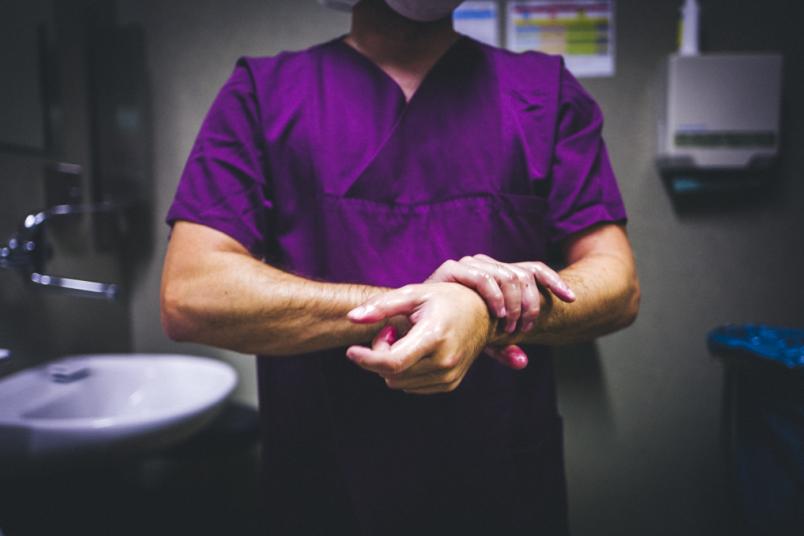The RUB service portal contains current information and recommendations on the new coronavirus (Covid-19). Since not all RUB members have access to the service portal, you can also find this information here. It is continuously updated.*
Background
In December 2019, respiratory diseases caused by a previously unknown virus (SARS-CoV-2) appeared for the first time in China (city of Wuhan). International and German health authorities are currently monitoring the spread and progression of the disease.
Recently, local outbreaks have also been reported in other countries (e.g. South Korea and Northern Italy). In Germany, only a few confirmed cases of infection with the novel coronavirus have so far occurred. However, the import of further cases to Germany must be expected. According to experts, a worldwide spread of the pathogen seems increasingly probable.
Transmission
The disease is a human-to-human transmitted respiratory disease, often mild with signs of a cold. Severe disease progressions, sometimes with fatal outcome, occur.
The incubation period (time between contact/infection and the appearance of the disease symptoms) is estimated to be up to 14 days. It is possible that the infected person is already contagious during the incubation period. The transmission pathway is through the air (droplet infection) and as smear infection (through the hands).
Hygiene measures
The following hygiene measures, which also serve to prevent other respiratory tract infections, are important for protection against infection:
-
If possible, keep a distance of one to one and a half metres from other people
-
Avoid handshakes
-
Wash your hands regularly and thoroughly with (liquid) soap, especially before eating, medication and cosmetic treatments and after coming home, contact with the sick, blowing your nose, coughing and sneezing and going to the toilet
-
Avoid touching the face (mouth, nose, eyes) with unwashed hands
-
Maintain the coughing and sneezing etiquette, i.e. keep your distance from other people and turn away, sneeze or cough into the crook of your arm or a disposable handkerchief (dispose of it afterwards) and then wash your hands thoroughly
-
For further information, please contact the Federal Centre for Health Education BzgA Hygiene Recommendations (German)
Returning from China and other countries
People returning from a trip from abroad should observe the following:
Students and employees who are classified as risk persons (see below) according to the above definition should contact the responsible health office at their place of residence by telephone immediately after their return. The staff of the health office will then coordinate all necessary medical measures. In any case, you should stay away from the Ruhr-Universität for 14 days after your return or contact with a person suffering from the new coronavirus. Other personal contacts should also be kept to a minimum during this time.
Employees of the Ruhr-Universität who are affected by this should contact their superiors by telephone or e-mail to agree whether and how (e.g. in the home office) work can be done. Affected students are asked to contact the student deanery of their faculty.
Students returning from China, Northern Italy and South Korea should contact a doctor by telephone if they experience symptoms such as fever, cough and breathing difficulties, and should make reference to the trip and discuss the further procedure with him/her. Under no circumstances should you visit a doctor's surgery or hospital without prior telephone consultation, as this could possibly infect other people.
Until it is clarified whether a corona infection is present, unnecessary contact with other people should be avoided and the hygiene measures described above should be strictly adhered to.
In the event of severe symptoms of illness, the rescue service must be called on the emergency telephone number 112. When calling the rescue service, the possible contact with the novel corona virus and the existing health complaints must be pointed out.
Persons at risk for a disease of the novel coronavirus:
-
Persons who have stayed in the Chinese province Hubei (including the city of Wuhan) or the cities of Wenzhou, Hangzhou, Ningbo, Taizhou in Zhejiang province.
-
Persons who have had contact with persons suffering from the novel coronavirus in the last 14 days.
Further information Federal Foreign Office
Further Information Robert Koch Institute
RKI information on the COVID 19 situation in Italy (German)
* Last updated on 25.2.2020
